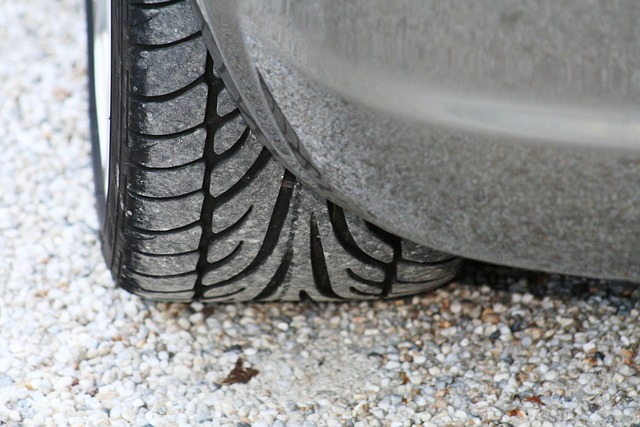Choose the Right Tires Without Breaking the Bank
Selecting the perfect tires for your vehicle doesn't have to drain your wallet. With proper research, comparison shopping, and understanding of tire specifications, you can find quality tires that match your driving needs and budget. From understanding tire ratings to exploring online purchasing options, making an informed decision helps ensure safety, performance, and value for your investment.

Finding the right tires requires balancing performance, safety, and cost considerations. Modern tire technology offers numerous options across different price ranges, making it possible to secure quality rubber without overspending. Understanding tire specifications, shopping strategies, and available purchasing channels helps drivers make informed decisions that protect both their vehicles and their budgets.
Buy Tires Online for Better Deals and Selection
Online tire retailers have revolutionized the tire buying experience by offering competitive pricing, extensive selection, and convenient delivery options. Digital platforms provide detailed product information, customer reviews, and specification comparisons that help buyers make informed choices. Many online retailers partner with local installation centers, creating a seamless purchasing and mounting experience.
Online shopping eliminates the pressure of in-store sales tactics while providing access to manufacturer rebates and seasonal promotions. Digital platforms often feature user-friendly search tools that filter results by vehicle make, model, driving conditions, and budget parameters. This approach allows for thorough research and price comparison before making a final decision.
Compare Car Tires Across Multiple Categories
Tire comparison involves evaluating performance characteristics, longevity, and value propositions across different brands and models. Key factors include tread life warranties, fuel efficiency ratings, wet and dry traction performance, and noise levels. Understanding these specifications helps identify tires that match specific driving patterns and regional weather conditions.
Manufacturer ratings provide standardized metrics for comparing tire performance across brands. The Uniform Tire Quality Grading system rates tires on treadwear, temperature resistance, and traction capabilities. These ratings, combined with independent testing results and user reviews, create a comprehensive picture of tire performance and value.
Tire Buying Guide Essentials for Smart Shoppers
Successful tire purchasing begins with understanding vehicle requirements and personal driving habits. Checking the vehicle owner’s manual provides manufacturer recommendations for tire size, load rating, and speed rating specifications. Considering annual mileage, typical driving conditions, and performance priorities helps narrow down suitable tire categories.
Timing purchases strategically can yield significant savings through seasonal sales, manufacturer rebates, and retailer promotions. Spring and fall typically offer the best deals as retailers clear inventory for seasonal tire changes. Monitoring multiple retailers and signing up for price alerts helps identify optimal purchasing opportunities.
| Tire Type | Popular Brands | Price Range | Key Features |
|---|---|---|---|
| All-Season | Michelin, Goodyear, Continental | $80-200 per tire | Year-round performance, moderate tread life |
| Performance | Bridgestone, Pirelli, Dunlop | $120-300 per tire | Enhanced handling, shorter tread life |
| Budget | Cooper, Hankook, Kumho | $60-120 per tire | Basic performance, value-focused pricing |
| Winter | Nokian, Blizzak, X-Ice | $100-250 per tire | Cold weather traction, seasonal use |
Prices, rates, or cost estimates mentioned in this article are based on the latest available information but may change over time. Independent research is advised before making financial decisions.
Installation and Maintenance Considerations
Proper installation ensures optimal tire performance and safety. Professional mounting services include wheel balancing, valve stem replacement, and alignment checks that extend tire life. Many retailers offer installation packages that include these services at competitive rates compared to standalone tire purchases.
Regular maintenance practices maximize tire investment value through extended tread life and improved fuel efficiency. Maintaining proper air pressure, rotating tires according to manufacturer schedules, and monitoring tread depth helps identify replacement needs before safety becomes compromised. These practices also help maintain vehicle warranties and ensure consistent performance.
Making the Final Decision
Balancing immediate costs with long-term value requires considering total ownership expenses rather than just purchase price. Higher-quality tires often provide better fuel efficiency, longer tread life, and enhanced safety features that justify premium pricing. Calculating cost-per-mile based on expected tread life helps identify the best overall value.
Reading professional reviews, consulting tire dealer recommendations, and considering manufacturer warranties provides additional confidence in tire selection. Many manufacturers offer road hazard protection and satisfaction guarantees that add value to the purchase decision. Taking advantage of these programs helps protect the tire investment while ensuring satisfactory performance.




